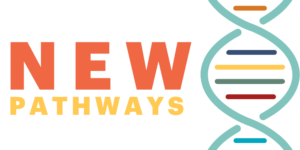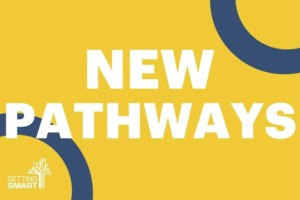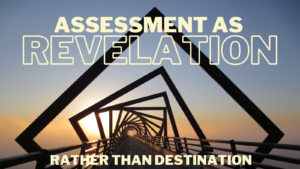Whose Accountability System is this Anyway? Kentucky’s Journey Toward Shared Ownership of Assessment and Accountability Systems
Key Points
-
Kentucky is one of the proud recipients of this year’s Competitive Grant for State Assessment (CGSA) awards from the US Department of Education.
-
One of the key challenges of the current assessment and accountability system – the lack of coherence between the demands of the state and what local communities value.

By: Doannie Tran and Jason Glass
Kentucky is one of the proud recipients of this year’s Competitive Grant for State Assessment (CGSA) awards from the US Department of Education. With our award, we will address one of the key challenges of the current assessment and accountability system – the lack of coherence between the demands of the state and what local communities value. Even if both systems are designed for equity, the lack of coherence between them has failed to increase equitable opportunities for young people and communities.
The current state of incoherence stems from a key dilemma within the modern test-based accountability movement of the 1990s and 2000s. The goals of this movement were laudable: create a publicly available and transparent system of school and district ratings that could shine a light on inequities and differences in outcomes between student groups, compelling school organizations to better serve students who had historically been “left behind.”
But as our colleague Paul Leather notes in this piece, there is another system of accountability which receives much less attention – local districts’ accountability to their communities. If the federal and state accountability question is, “Do all students regardless of zip code have equitable access to educational opportunity?”, then there is also a local accountability question of, “Are we meeting the expectations of local community needs, once we have answered the state and federal concern?”
While the system of tests and accountability in the United States certainly achieved some of its goals in that we have readily available measured outcomes in reading, math, and science highlighting differences between different student groups, the confidence of both educators and the public in these tests and ranking systems continues to erode.
A compelling argument can be made that what is currently measured on a machine-scored standardized test gives us a reductive view of student capabilities. These tests do not capture well the depth and breadth of skills necessary to be a successful and happy worker, citizen, and human being. Further, the testing data used in accountability rating systems do not capture the values and priorities of local communities in what they want from their schools. Rather, it too often simply reflects current socioeconomic conditions of given communities, thus exacerbating social divisions.
Deeper and more durable achievement requires the buy-in of communities, educators, families and students. If assessment and accountability systems are to have a meaningful impact, their authority and meaning must matter internally to the people in communities, instead of imposed externally from the state or federal government – a concept Northwestern University’s Cynthia Coburn calls “reform ownership” (Coburn 2003).
But how do we actually attain this level of community ownership, especially after two decades of assessment and accountability being something imposed on communities externally?
Kentucky’s Context
This question is central to our educational improvement efforts in Kentucky and we have worked to both include and empower community voices from the start. As part of a statewide outreach and visioning process, we listened to the stories of over 1,200 Kentuckians to hear about their experiences as learners and aspirations for Kentucky’s schools. We then pulled together a large and intentionally diverse group called the Kentucky Coalition for Advancing Education, which was formed to craft an honest description of the current state of education and to chart an aspirational future state for learning in the Commonwealth, represented in the United We Learn report.
The coalition included an uncommon mix of perspectives – students, educators, families, employers and community members from across Kentucky. The coalition was also more racially diverse than Kentucky as a whole. These members weren’t just in the room, we took time to understand their experiences and involve them in co-creating the vision. We asked them to go out and test our vision with their communities, and we responded to what they learned. This is a very different way of working for a state agency, one based on reciprocity rather than command and control, and it resulted in much deeper ownership. That work has set the stage for aligned efforts taking place across Kentucky, with local coalitions working with districts to redesign local accountability systems, putting the values of communities first.
There is certainly still skepticism as we are working against years of externally imposed accountability systems, where local and community voices have felt powerless to decide what is valued. States feel controlled by distant federal decision-makers, districts feel controlled by state agencies, teachers and principals feel their work is controlled by districts, parent values are not reflected, and student voices are marginalized. After years of top-down and externally designed and imposed systems of assessment and accountability, it is no wonder why confidence in the tests and ratings are low.
One key finding of the report written by the Coalition is that the people of Kentucky – its students, families, educators and community members – all wanted to be seen as more than a test score and that they were tired of the culture of ranking and competition that our accountability system creates. And there was a strong sense that our current system of testing and accountability was a real barrier to the kinds of shifts in learning and student experience our students will need to thrive in an accelerating, globally interconnected, and automated world.
To be clear, no one is shying away from accountability. What Kentuckians are asking for is a deeper and more authentic way of building shared and reciprocal accountability between districts and their communities. Our local communities want the state department to find ways to be in reciprocal accountability with them. How can we learn about what they value? How can we help inform them about what it takes to be ready for the rapidly changing global economic and social environment our children will enter as adults? If we care about both local values and equity of opportunity, then what do we measure, and who gets to decide?
Deeper and more durable achievement requires the buy-in of communities, educators, families and students.
Doannie Tran and Jason Glass
Of course, the federal government and state has needs and expectations relative to equity and communities have important educational goals that matter to them. External experts can support the technical questions that emerge from both these sets of aims. However, if we recognize that a “one-size-fits-all” approach can no longer resolve the local-state-federal tension, we must make sure that those working and learning in our schools, and those living in our communities, have an empowered seat at the table.
Federal Grant Provides Opportunity
We are excited that the US Department of Education has invested in this opportunity to demonstrate how to build a system that respects both local and state needs. We think it is particularly meaningful that the department recognizes the critical role that communities must play in defining the future of assessment and accountability.
In our grant application, we acknowledged that resolving what to measure and how to hold accountability is not a one-time problem. It is something that will have to be wrestled with over and over again since the relationship between education systems and communities is always evolving. We firmly believe that the solutions to our assessment and accountability challenges will be solved when local communities, districts and state agencies work hand-in-hand.
We sought to model this kind of relationship in how we wrote the grant. It was a collaborative process with our community that was inclusive, empathy-driven, co-created and responsive to new information. We brought together experts in accountability, policy, innovative instruction alongside students and families to create our proposal. Our priority from the beginning was to create a mechanism for ongoing reciprocity between the local and the state systems of assessment and accountability. Working together, we created a plan for a state-wide council that will do what is admittedly very complex work. Our plan creates a system that encourages local efforts to develop vibrant learning experiences for every student, translates what local communities are learning into new systems of assessment and accountability, and then crafts recommendations for how state policy needs to respond to what is emerging from communities.
What comes from this process is still to be seen. Dozens of communities are engaged in this work, and it will be up to us to be responsive to what they are learning. But we believe that if we are true to redesign assessment and accountability systems that have real meaning, there needs to be genuine ownership from our local communities. Involving and empowering them from the outset is the only real path toward that goal. The only way forward is through a system that acts in true reciprocity with communities.
Doannie Tran is Partner of Liberatory Co-Creation, Center for Innovation in Education and Co-Founder at Open Systems Institute.
Jason Glass is the Commissioner and Chief Learner of Education for Commonwealth of Kentucky.
This post is part of our New Pathways campaign sponsored by ASA, Stand Together and the Walton Family Foundation.







Joe Nathan
Thanks for sharing this and congratulations on the award. Looking forward to
reading what you create. This report, though some years old, might be helpful. "What Should we Do? A Guide to Assessment and Accountability" http://centerforschoolchange.org/wp-content/uploads/2012/10/What-Should-We-Do-Report.pdf